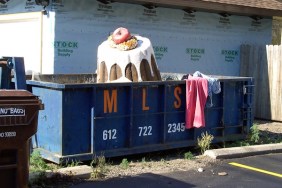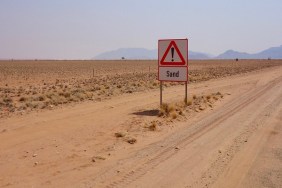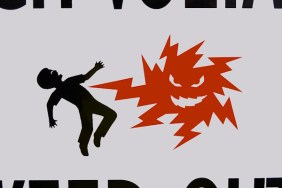The summer gardening season may be coming to an end, but that doesn’t mean you should stop composting, especially when you could easily divert more than half of your trash into a free source of soil. And with all of the fun and seemingly crazy things you can actually compost – from condoms to masking tape – you’ll certainly have no shortage of things to throw in the pile.
Latex Gloves, Balloons & Condoms
(images via: pink moose, joost j. bakker, trec_lit)
It’s easy to forget that latex is a natural, biodegradable material. So if after a party you’ve got tons of droopy balloons, latex gloves and used condoms sitting around (we’re not asking any questions), just toss them in the compost pile – they’ll be gone within six months.
Wine Corks
(image via: dawgbyte77)
Many wineries may have switched to plastic corks, but natural is still better for a number of reasons – not the least of which is that by purchasing cork, we help protect cork forests in Portugal. But unlike plastic corks, natural corks are compostable – though they do need to be broken down into smaller pieces first, since they take a while to biodegrade.
Toothpicks & Matchsticks
(images via: backpack photography, nerissa’s ring)
It’s far too easy to just toss little things like toothpicks and cardboard or wood match sticks into the trash, but they do add up over time, and both are easily broken down in the compost bin. Just be sure to avoid the cocktail skewers with the little plastic frills on one end (unless it’s real cellophane, which is compostable too!)
Loofahs & Natural Sponges
(image via: vanessa yvonne, gregory moyne)
Loofahs – a type of vegetable – and sponges from the sea are both biodegradable, renewable natural resources that can be used until they’re utterly spent and then composted for a veritably zero-waste product.
Dryer Lint
(image via: accent on eclectic)
As long as you’re washing mostly natural fiber clothing and other textiles, composting dryer lint is no problem. But there’s something else you can do with it, too: it makes fantastic tinder! Keep it in little zip-lock baggies for camping and other outdoor fires. Or, you know, you could leave it out for a homeless opossum.
Natural Fabrics & Fibers
(image via: boliston)
Holey socks, t-shirts, baby booties – any clothing or textile item that’s made of natural fabric including cotton, wool, linen, flax, hemp and bamboo will break down in the compost pile. That even goes for sheets, throw rugs, tatami mats, baskets and rope.
Stale Chips, Crackers & Cereal
(image via: oskay)
Don’t you hate it when you leave a box of crackers unsealed, and it’s totally stale by the next morning? No need to throw it in the trash, however: while some people debate whether stuff like this should be composted, it’s typically okay as long as it’s well buried (it can attract rodents and other pests.)
White Glue & Used Masking Tape
(images via: debs, xcorex)
Masking tape is handy for all kinds of things – including creating rich garden soil. The paper type (without silicone) is fine to compost, as is white glue including Elmer’s brand. Papier-mache and wheat paste are usually compostable as well.
Feathers and Fur
(images via: lara604, davidgsteadman)
Anyone with dogs or cats in the house knows about the gigantic fur tumbleweeds that can develop on the floor if you don’t sweep often enough. Gather these up, along with excess fur from grooming, and compost them. Pet hair in the garden can actually repel unwanted visiting animals. And feathers, of course, are biodegradable too – so whether you have a pet bird or randomly find them strewn about your yard, toss them in.
Paperback Books
(image via: ron brinkman)
They might take a while to fully decompose if composted whole, but you can always rip paperback books that are no longer fit for reading apart first (removing any glossy covers or inserts).
Liquid from Canned Foods
(image via: zebrashatehail)
Whether it’s that weird slimy sludge from a can of beans or the sticky syrup from some preserved peaches, the liquids from canned foods can be a great addition to the compost pile, adding lots of nutrients.







